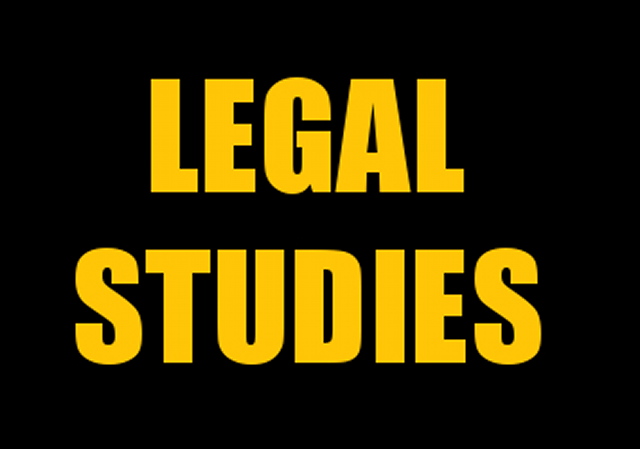Law School at UPenn and Others Embracing ‘Activist-Oriented Approach’ to Legal Profession
“building the power of the people, not the power of the law”

This is obvious, isn’t it? All you have to do is look at the behavior of many law students today.
Campus Reform reports:
UPenn joins other law schools across country teaching activist ‘movement lawyering’
The University of Pennsylvania’s Carey Law School now runs an Advocacy for Racial and Civil Justice (ARC) Clinic, teaching students to “reflect on historical and contemporary strategies for achieving racial justice.” The Clinic also involves the “theory of movement lawyering,” an activist-oriented approach to the legal profession that has increased its influence in American law schools.
According to a 2021 article posted to the American Bar Association’s website, movement lawyering entails “building the power of the people, not the power of the law.”
The article also suggests that “support is needed as people take to the streets and hold spaces to collectively heal and as we work over the long haul to dismantle systems of oppression, including white supremacy, cis-heteropatriarchy, and capitalism in our country.”
A “Movement Lawyering Reading Guide” released by Harvard in 2013 explains that the approach has also been referred to as “revolutionary lawyering” and “social justice lawyering.”
The movement even has an international presence, with the Australian organization Reb Law explaining that “movement lawyers have supported transformative campaigns and movements such as the Movement for Black Lives’ campaign to defund police … and the same sex marriage campaign in the United States.”
Carey Law School is not the only law school in the United States to teach movement lawyering to its students.
Cornell Law School has a “Movement Lawyering Clinic” that teaches students to “provide legal support for social justice groups including women’s liberation, Black liberation, immigrants’ and LGBTQ rights, and more.”
Columbia Law School offered a “Reading Group in Movement Lawyering” in 2020. The purpose of the group was to “introduce students to the different avenues and theories public interest lawyers can utilize to conceptualize and achieve social change.”
 DONATE
DONATE
Donations tax deductible
to the full extent allowed by law.









Comments
Wait until they discover that “public interest lawyers” live on lentils.
Not if they can develop the right grievance hustle and/or maybe parlay it into a political career.
Their definition of power of the people is mob rule
Memos for activist lawyers:
1. You’re apparently doing your best to foment a civil war.
2. Believe me, cupcakes, you really don’t want a civil war: it’ll turn out very badly for you.
They could not tell the difference between a tort and a tart, let alone explain it.
It’s “torte”. One is a cake and the other more of a pie.
Mincemeat being the flavor which will be served the most to these lawyers.
“The article also suggests that “support is needed as people take to the streets and hold spaces to collectively heal and as we work over the long haul to dismantle systems of oppression, including white supremacy, cis-heteropatriarchy, and capitalism in our country.”
Someone is gonna be real shocked when they find out what a hearty breakfast they will provide for any old style lawyers and judges whom they will face in court.
If they have their friends in the presidency and Senate, they will be the new-style judges.
It’s obvious that no law firm in normal states should hire anyone from a law school in a blue state. Let them dismantle all they want in Ivy League places; while the rest of the country works much better.
Also, I wonder why the “intellectuals” are the first targeted whenever a marxist regime takes control?? Mao and Pol Pot wasted no time with university professors, and neither did Hitler. Just saying….
This should be good news for law schools below the first tier, as their graduates might get more love from people who just want to hire a competent and willing beginning lawyer. Not sure it will go that way, but hoping.
This is the legal version of “medical marijuana,” or as a mentor once put it, a factitious treatment for factitious disorders.
I thought most lawyers spent their time writing wills, conveyances etc. and giving legal advice. Will the new focus neglect training in these areas?
They have 3 years and it seems there’s not much clarity on what the purpose of the third year is, yet they have to pay for it, so it gives plenty of time for stuff like this.
Movement lawyering is just for their movement, to build the power of their friends among the people. Is it right for law schools to take a side like this? I guess it’s legal, so our obvious defense as a nation is to decertify these lawyers and throw the bar association out of power. It was nice for a while but it isn’t working out.
The law is what governs the conduct of people. Somehow, it seems someone has forgotten the line “equal justice under the law!” The power of the people is at the ballot box not their feelings or emotions.